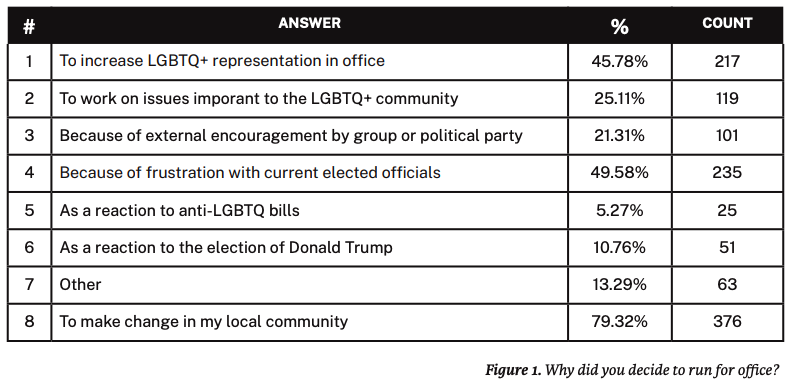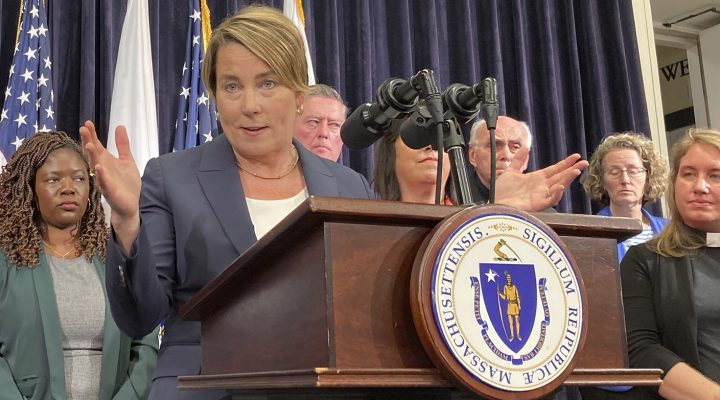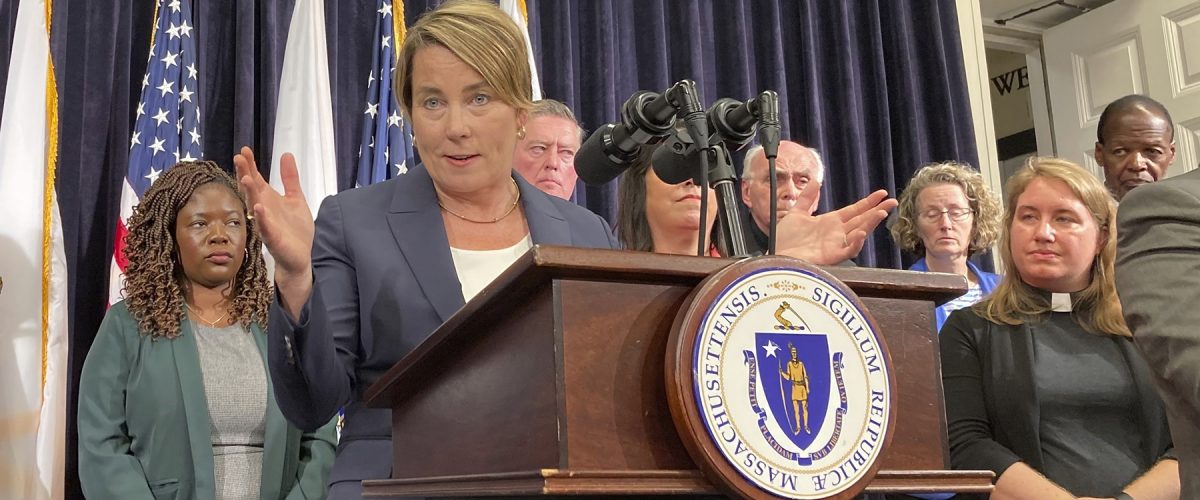A growing number of LGBTQ elected officials are pushing back against discrimination while encouraging more members of their community to seek elected office, according to a new study by the LGBTQ+ Victory Institute and Loyola Marymount University.
“A record number of LGBTQ elected officials are now serving in the United States, with more than 1,200 in elected positions at every level of government as of August 2023,” according to “When We Run: The Motivations, Experiences and Challenges of LGBTQ Candidates in the United States.”
“These LGBTQ leaders are on the frontlines in the movement for equality: changing the hearts and minds of their constituents and legislative colleagues, leading the charge against anti-LGBTQ bills, and ensuring policies are inclusive of LGBTQ people,” the report states.
The September report found plenty for the LGBTQ community and its supporters to celebrate, including an all-time high 1,065 LGBTQ individuals running for office in 2022, resulting in 430 victories in school board races and contests for statehouse and Congressional seats. Lesbian Maura Healey was elected governor of Massachusetts, and lesbian Tina Kotek was elected governor of Oregon in what advocates called a “rainbow wave.”
But the study also documented the steep challenges LGBTQ candidates faced in their campaigns: “LGBTQ candidates continue to face unique experiences and challenges many other candidates do not. From fear of harassment on the campaign trail to voters questioning an LGBTQ person’s electability to frequent anti-LGBTQ attacks, LGBTQ candidates must navigate a constellation of obstacles in making the choice to run and in securing the most votes at the ballot box.”

Yet the survey of more than 470 LGBTQ people who ran for office from 2018 to 2022 uncovered a selfless resilience kept candidates going despite the backlash. “Nearly four out of five LGBTQ candidates said a desire to make change in their local community was a top motivation to run for office,” the report explains.
Working against the anti-gay, anti-trans legislation being debated in statehouses and school boards across the nation motivates queer candidates to run for office, the study found. “Trans women (14.3%) and gender nonconforming, genderqueer and nonbinary candidates (10.3%) were the most likely to cite anti-LGBTQ legislation as a top motivation to run, a finding possibly related to them being the primary targets of recent anti-LGBTQ bills.”
But LGBTQ candidates also had a lot to be afraid of in seeking elected service. The report found nearly 77% feared a run for office would open them to attacks and harassment, which was a potential deterrent from entering political races. About three in 10 trans women and 38% of gender nonconforming, nonbinary and genderqueer candidates “worried a lot about harassment or attacks — the highest among sexual orientation and gender identities.”
A third of LGBTQ candidates said they were discouraged from running due to their sexual orientation and a fifth because of their gender identity.
For many, the fear was demoralizing, with a third of LGBTQ people saying they were discouraged from running due to their sexual orientation and a fifth because of their gender identity.
While most (84%) said their LGBTQ identity made them better candidates, and 59.5% believed their sexual and gender orientation increased their empathy for the struggles of others, respondents acknowledged their identities may have made voters less confident in them as candidates.
Furthermore, 44% of candidates reported difficulties raising campaign funds and roughly four in 10 said they took on personal debt to cover campaign expenses. “When on the campaign trail, LGBTQ candidates, like many candidates, find fundraising is a significant challenge and therefore should remain a focus for training opportunities. Yet questions around the viability and electability of LGBTQ candidates — from voters, political parties and the media — are a peculiar challenge that can undermine both fundraising and political support,” the report says.
Also, 71% of these candidates experienced anti-LGBTQ attacks during their campaigns, including 14% of them on a weekly basis, the study says. Those running in conservative districts endured weekly attacks at a higher rate (23.6%) than those in toss-up (13.5%) or progressive (10.3%) areas.
Close to 33% of respondents said those attacks originated from conservative groups while 19% identified the attackers as religious organizations. Although social media attacks were the most common, 36% said they received verbal attacks and close to 20% received hate mail.
Some also received physical threats, with queer candidates reporting the highest rate (11.8%), compared to 9.8% of bisexual, 9.1% of gay and 4% of lesbian candidates.”


